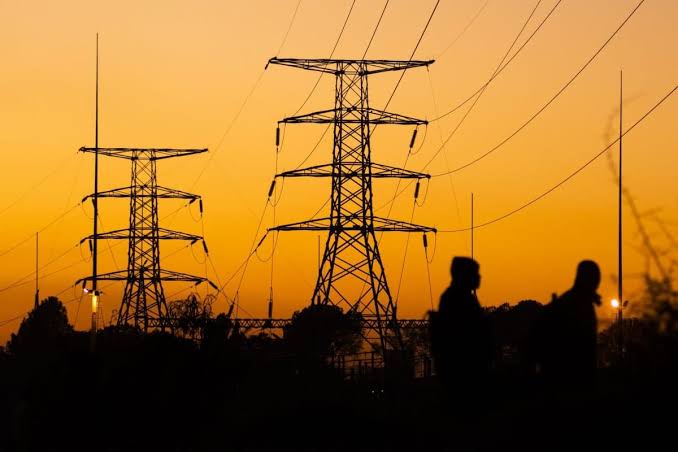- Electricity firms generate N769m from mass metering of Army barracks
Nigeria’s electricity distribution companies were only able to recover ₦191.75 billion of the ₦245.93 billion billed to consumers in February 2025, leaving a revenue gap of ₦54.18 billion, according to the Nigerian Electricity Regulatory Commission.
This was disclosed in NERC’s February 2025 commercial performance report, which showed a collection efficiency of just 77.97 per cent across all DisCos.
The report also indicated that out of the 2,583.19 gigawatt-hours of energy received during the month, only 2,135 GWh was billed to customers.
This means 446.19 GWh went unaccounted for, resulting in a billing efficiency of 82.73 per cent.
The difference between the average collection charge and the actual cost of electricity contributed to the revenue shortfall.
DisCos collected an average of ₦88.21/kWh, while the average regulated pricing was ₦116.18/kWh.
The resulting ₦27.97/kWh gap represented the implicit subsidy carried by the Federal Government.
In terms of energy intake and billing, Ikeja DisCo topped the chart with 400.04 GWh received and 332.37 GWh billed an 83.08 per cent billing efficiency.
Eko DisCo followed with 365 GWh received and 325.45 GWh billed (89.02 per cent efficiency), while Abuja DisCo billed 278 GWh out of 385 GWh (77.08 per cent efficiency).
Eko DisCo had the most cash collections (₦41.24 billion), followed by Ikeja (₦41.18 billion) and Abuja (₦35.67 billion). Yola, Kaduna, and Kano DisCos had the lowest collections with ₦60.2 billion, ₦117.21 billion, and ₦127.78 billion, respectively.
Aba DisCo, which has the fewest customers, collected ₦32.61 billion.
Experts warn that the growing revenue gap threatens the stability of Nigeria’s electricity sector.
“This level of revenue loss is unsustainable,” said Aisha Mohammed, an energy analyst at the Lagos-based Centre for Development.
“The DisCos need to significantly improve their collection efficiency to ensure the financial viability of the power sector,” the experts said.
Discos generate N769m from mass metering of Army barracks
In a related development, the Federal Government has revealed that its mass metering initiative for army barracks across the country has generated over N769m in revenue collection by electricity distribution companies for the power sector between August 2024 and April 2025.
Recall that in March 2023, the Minister of Power, Adebayo Adelabu, launched the initiative at the Ikeja Cantonment in Lagos.
He said the project aims to enhance electricity accountability and efficiency within military facilities.
The development also comes amidst the recent incidents of torture and brutalisation of electricity workers by army personnel.
In a letter to De-Haryor Global Services, the project contractor, Chief of Army Staff, Lt. Gen. O.O. Oluyede praised the progress of Phase One, noting “improved hours of power supply” and positive impacts on energy management in beneficiary barracks.
Signed on behalf of the Army Chief by Maj. Gen. A.A. Fadayiro, the letter highlighted the near-completion of Phase One, which covers installations in Lagos (Ikeja), Enugu (Abakpa), Adekunle Fajuyi Cantonment, and select Abuja barracks.
He urged the contractor to expedite work on subsequent phases.
The statement signed by the power minister’s media aide, Tunji Bolaji, read, “The Nigerian Army has lauded the Federal Government and De-Haryor Global Services for significant strides in the ongoing nationwide mass metering initiative across military barracks, aimed at enhancing power supply and optimising energy consumption management.
“The project, directed by the Federal Government to improve electricity accountability in barracks, was inaugurated by Power Minister Chief Adebayo Adelabu in March 2023 at the Ikeja Cantonment, Lagos. Despite challenges, the project has generated N769.1 million in revenue between August 2024 and April 2025, underscoring its operational success.”
De-Haryor CEO Ashade Olatunbosun, on his part, acknowledged initial financial hurdles, citing delayed fund disbursements that slowed early mobilisation.
However, he reported “considerable momentum,” with thousands of smart meters now installed to boost transparency, billing accuracy, and energy efficiency.
Olatunbosun attributed this to the Army’s “strong satisfaction” with execution quality, which has sparked discussions to expand metering to additional military facilities.
“This marks a milestone in modernising Nigeria’s energy infrastructure, particularly within public institutions,” he stated.
The initiative reflects broader efforts to resolve power deficits in critical sectors while fostering fiscal discipline through advanced metering solutions.

